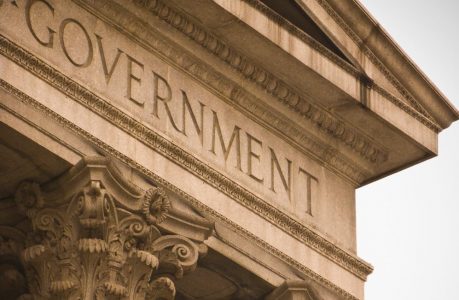Widgetized Section
Go to Admin » Appearance » Widgets » and move Gabfire Widget: Social into that MastheadOverlay zone
Professionals in Government: A Necessity or Luxury?
The views expressed are those of the author and do not necessarily reflect the views of ASPA as an organization.
By Donald C. Menzel
December 9, 2020

A debate is raging in Washington about the proper role of civil servants in our national government. The Trump Administration is moving at warp speed to identify all civil servants with “policymaking” responsibilities so that they can be removed and replaced with political appointees loyal to the President. Presently, the President has authority to appoint about 4,000 government workers. The claim is that this is not a sufficient number to ensure that the Administration’s policies are carried out. President Trump calls this the, “Deep state.”
To more carefully examine this proposition, let’s take a look at the history behind the idea and practice of civil service. The story begins with President Andrew Jackson’s election in 1828. Jackson was a populist who believed that ordinary Americans could serve at all ranks of government. This practice became known as “patronage politics,” hiring friends and political supporters in the federal government, and more broadly the “spoils system.” For six decades, patronage politics dominated American governments at all levels and was increasingly viewed as cronyism politics that did not serve the American people. In 1887, an academic faculty member with a Ph.D. and future president Woodrow Wilson published an influential essay, “The Study of Administration,” that called for the strict separation of politics and administration. Preceding the essay a few years earlier was the passage of the Pendleton Civil Service Reform Act of 1883, the landmark attempt to put an end to patronage politics and promote competence and professionalism in government.
The Progressive Movement at the turn of the 19th Century further sealed the fate of patronage politics as political reforms across America took hold. Progressives transformed, professionalized and made “scientific” the social sciences, especially history, economics and political science.
The advent of WWII gave us big science, big government and big problems to be solved. The professionalization of the civil service—hiring based on merit and promotion based on competence—meant that civil servants were ever more important. As their ranks grew, it was quite clear that protection and job security was necessary to build an apolitical government workforce that would serve any president regardless of his/her political affiliation. 50 years later, job security and tenure for civil servants became viewed by a growing number of elected officials as “bureaucratic obstacles” that resulted in little risk taking and too much self-serving. The lament, “You can’t fire a civil servant,” became the battle cry for change.
President Jimmy Carter took this message to heart and persuaded the Congress to pass the Civil Service Reform Act of 1978, thus establishing the Senior Executive Service (SES) with an emphasis on job performance and competitive compensation. Up to 10% of the SES workforce can be filled by political appointees. SES managers have considerable discretion to do their job and therefore engage in implementing, not making, public policy.
The Trump Administration proposal calls for reclassifying positions with a policy component (including SES) into a new personnel category Schedule F.—a designation that would strip them of long-held civil service protections and allow them to be fired with little demonstrated cause or recourse.
The Trump Executive Order calling for a new classification of civil servants will surely result in the reinstatement of the “spoils system,” long thought dead. Now that President Trump has not been re-elected, one might wonder what the motivation is to finish the task of reclassification by January 19, 2021. Two motives come to mind: 1) firing a large number of civil servants is certainly an act of revenge, and 2) the incoming Biden administration will find itself struggling to get things done because there would be many open positions. Do you want political hacks managing your social security, Medicare and taxes? Of course not.
The Trump proposal is certainly without merit and should be soundly rebuked by Congress. Doesn’t America deserve a competent, professional civil service?
Author:
Donald C. Menzel, Ph.D. Penn State U.
2005-06 Past ASPA President


raj kumar Siwach
December 31, 2020 at 11:12 am
Such disquieting trends are coming to the fore in India. Though protection and patronage, in fact, are susceptible to political consideration. Even constitutional security to civil servants caused the flourishing of corruption. Thus, Admnve Reforms commission recommended to repeal it. Thus, Prof. Menzel deserve appreciation for this scholastic commentary. I would love to know more about it.
Happy new year
Anna Marie Schuh
December 12, 2020 at 3:59 pm
Don, this column was great. The average citizen needs to understand the benefit of a apolitical, technically competent policy making process.